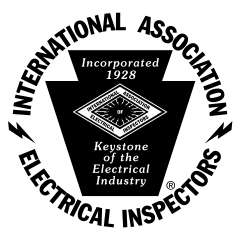I’m asked all the time from Realtors as well as home buyers what are the deal breakers of purchasing a home. When you go to the doctor for an annual physical exam, you get professional feedback on your health. Often, this is when you learn if you have any medical issues that need to be resolved. And just like you can’t fail a physical (no matter how poor your health may be), a house can’t fail an inspection.
A home inspection is simply a visual examination of a house’s overall condition. The home inspection report describes a house’s physical shape and identifies what might need crucial repair or replacement. Although what’s covered in a standard report can vary by inspector, typically the status of the following will be included: heating system, central air conditioning system, interior plumbing and electrical systems, roof, attic, visible insulation, walls, ceilings, floors, windows, doors, foundation, basement and all structural components.
So, what are the deal breakers which are caused by legitimate defective home issues for the buyer? That depends entirely on you. What is and is not a deal breaker depends on each person’s preferences and needs. For example, an inspection that identifies damaged floor joists might be a deciding factor for one person who feels the problem is too expensive or time-consuming to fix. However, the same trouble with joists might be absolutely acceptable for another client who has resources to fix the issue. A home inspector does not tell a customer whether or not to buy a house. Rather, it’s his or her job to provide all the available information so that home buyers (or sellers) can make the decision right for them.
Another deal-breaker for a Real-estate agent is often caused by the home inspector. Why?
1. Opinions from the home inspector:
Home inspectors are not to give their personal opinions on how long an Air Conditioner, furnace, roof or anything that is outside his or her expertise may last. This can be a serious deal breaker and has given home inspectors a bad rap. The home inspector is not to be an alarmist and should refer the potential buyer to get a professional contractor in that particular field to come and inspect the units or roof. The same goes for foundational issues that deem it necessary for a structural engineer to inspect a structural issue.
the home inspector should recommend to the potential buyer to get a ‘professional’ contractor that specializes in that field to give a more accurate assessment. Or a structural engineer to determine the foundation issues that may be found.
2. Home inspectors are not to be code inspectors:
This is Big! A home inspection is a visual examination and safety inspection ONLY! A home inspection is a limited, non-invasive examination of the condition of a home, Home inspections are to be conducted by a home inspector who has the training and certifications to perform such inspections. The inspector prepares and delivers to the client a written report of findings. A CODE INSPECTION is to enforce present building codes and are performed mostly by City, County or State ‘licensed’ inspectors.
This type of inspection has no business in the real-estate inspection arena. Yet some home inspectors feel the need to be code inspectors and this is just wrong. Example; If the home is relatively old, the inspector is not to fault the lack of GFCI receptacles that were not required at the time of the construction of that home unless it has been remodeled and brought up to present codes. This is vitally important because many inspectors feel the need to ’fill their reports with violations’, this is not the purpose and is counterproductive to both the seller, buyer and Real-estate agent. You cannot “FAIL” a home inspection because it is only a visual inspection for the purpose of giving the potential home buyer information found during the inspection so he/she can make an intelligent decision on whether to purchase the house or not.
Final Word Home Inspection Service has learned these lessons through the school of hard knocks over 30+ years of experience. Experience is a valuable teacher. You the buyer, seller or real-estate agent can depend on a wise, friendly and professional attitude from us.
It is interesting to note, that if you want to become an Appraiser, you not only are required education in that field but also work ‘TWO YEARS” under another Appraiser before he/she can go our on their own. However, to become a Home Inspector, you can purchase books on “How To Inspect a Home” and join an organization like ASHI, InterNACHI or some other one and then go out on your own. Profound! We at Final Word Home Inspection Service advocate that Home Inspectors become Georgia State Licensed through education and State test’s and a requirement should be that the person should work under another licensed Inspector for a minimum of 2 years.
Final Word has been in business since 1981 which started in Pennsylvania under ridged requirements for home inspector’s to become been licensed and certified by the State. I Co-Founded the North Georgia chapter InterNACHI [International Association of Certified Home Inspectors] in which we have monthly meetings instructing the inspectors on updated issues and procedures.
Previously, I also have been the Chief Building Inspector of the City of Snellville, Ga. and have worked for Southeast Consultants Engineering firm inspecting three other cities in the area. I have furthered my education in the field of inspections by attending the Southern Building Code Congress which is now ICC in Birmingham, Alabama. Final Word is has been certified not only to perform the re-sale of homes but also to inspect new construction of both residential and commercial buildings. That is why we understand the difference between a code inspection and a home inspection for buyers and sellers.










